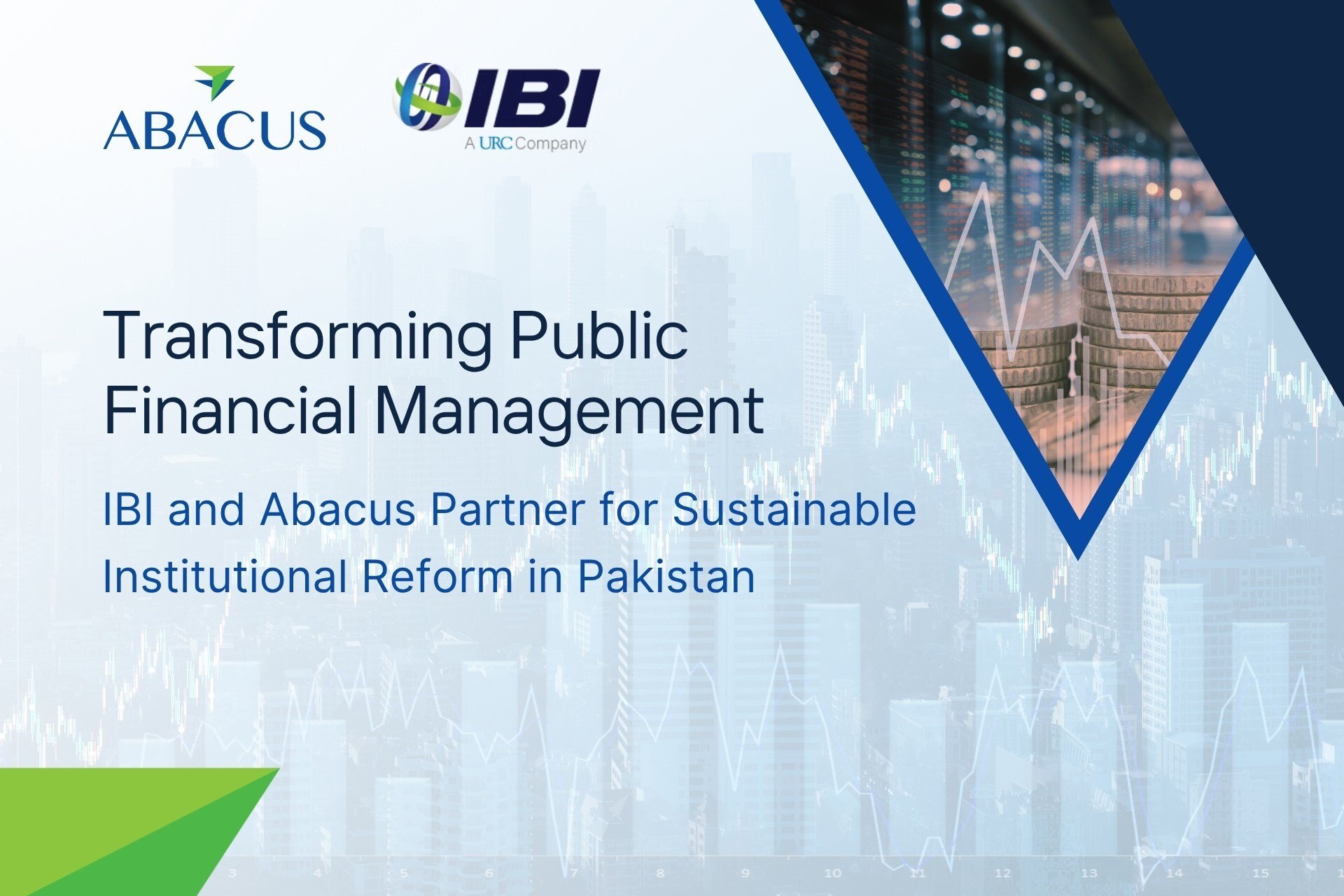
Industry Focus and Scope
The International Business Initiative (IBI), a prominent development sector firm operating in the United States and Pakistan, has been working closely with USAID to reduce fiduciary risk and improve the efficiency of donor funding. With a focus on institutional development and public financial management (PFM), IBI partnered with Abacus through the Pakistan Capacity Development Services – Small Business (PCDS-SB) initiative to support selected government agencies in Pakistan.
The program aimed to strengthen the capacity of provincial governments, specifically GoKP and GoSindh, to manage public funds effectively, transparently, and accountably.
The Challenge: Strengthening Public Financial Management Systems
Despite ongoing donor support, the selected provincial institutions faced significant structural and operational challenges:- Fiduciary Risk Exposure: Inadequate internal controls and fragmented systems increased the potential for mismanagement and inefficiencies.
- Lack of Standardized Processes: Absence of uniform planning, procurement, and performance management procedures led to inconsistencies and delays.
- Manual Operations: Heavy reliance on paper-based workflows hampered transparency and responsiveness.
- Capacity Gaps: Government staff lacked training in modern financial systems and effective performance management tools.
The Solution:
A Targeted Institutional Transformation Approach
To address these challenges, Abacus implemented a stepwise institutional development strategy under PCDS-SB, working closely with IBI, USAID, and provincial stakeholders. This strategy was specifically designed to build resilient, accountable, and efficient systems for public financial management.
Services & Solutions Provided:
- Comprehensive System Reviews: Conducted detailed assessments of planning, procurement, and performance management systems at GoKP and GoSindh to identify redundancies, inefficiencies, and automation needs.
- Digital Modernization Support: Supported automation across core functions to reduce manual processes and enable data-driven decision-making.
- Guidelines & SOP Development: Developed standardized operating procedures and policy manuals for critical functions, promoting uniformity and compliance.
- Training & Capacity Building: Delivered targeted training programs to government officials on newly introduced systems and frameworks.
- Institutionalization of Best Practices: Established documentation and access control systems to ensure sustainable financial governance.
Why This Approach Was Chosen
- Proven Public Sector Expertise: Abacus' track record in government transformation aligned with USAID’s accountability and efficiency goals.
- Scalable & Modular Strategy: The approach was adaptable to different institutional contexts and allowed phased implementation.
- Focus on Sustainability: Capacity building and institutional ownership were prioritized to ensure long-term impact.
- The Impact: A Blueprint for Sustainable Reform
The initiative led to measurable improvements in public financial management at both GoKP and GoSindh: - Increased Transparency: Clear guidelines and automated processes reduced opportunities for corruption and error.
- Enhanced Efficiency: Planning, procurement, and performance management processes became more streamlined and integrated.
- Greater Accountability: Defined roles, documentation protocols, and performance monitoring tools improved oversight.
- Improved Value for Money: Public expenditure became more aligned with development goals, improving the effectiveness of USAID funding.
Conclusion
This collaboration between IBI, USAID, and Abacus serves as a successful model of how technical assistance, when tailored with local needs and implemented strategically, can bring transformative change to government systems. The results underscore the importance of institutional development in achieving sustainable, transparent, and effective governance in the development sector.

.png?width=275&height=165&name=5470582%20(3).png)
Submit a comment